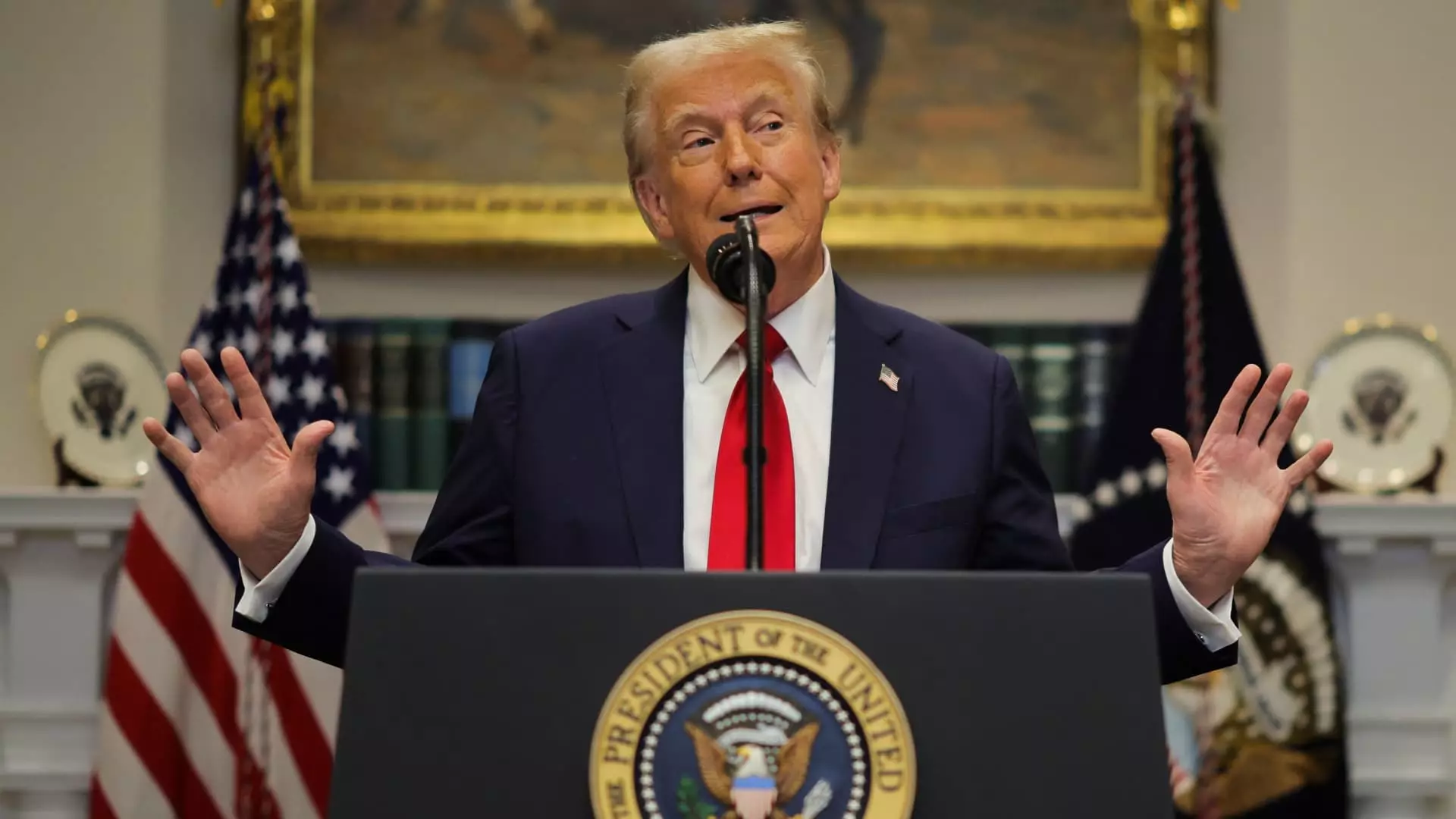In an unexpected move that has reignited discussions on international trade, former President Donald Trump recently indicated that his administration is contemplating a 10% tariff on Chinese goods. This tariff is slated to potentially come into effect on February 1. Trump labeled this action as a direct response to China’s exportation of fentanyl to neighboring countries, including Mexico and Canada, an issue of significant concern in the ongoing opioid crisis in the United States. This article examines the broader implications of such tariffs and the reactions from both domestic and international stakeholders.
Fentanyl, a synthetic opioid that has proliferated across American streets, has resulted in tens of thousands of overdose deaths annually. The majority of its precursors are sourced from China, before being funneled through Mexico into the U.S. market. In light of this epidemic, the U.S. has sought collaboration from China to curtail the supply of fentanyl and its precursors. Trump’s dialogue with Chinese President Xi Jinping emphasized this issue, with Xi advocating for mutual cooperation to enhance economic ties between the nations.
However, amid discussions of tariffs, a poignant reminder of the nuanced relationship between these global giants emerges. Xi’s insistence that “there are no winners in a trade war” reflects a growing recognition of the mutual economic dependencies that characterize U.S.-China relations. The implications of these tariffs, therefore, extend beyond mere economics; they pose moral and ethical questions about the responsibility of nations in addressing crises that have dire human consequences.
Economically, such tariffs could have far-reaching consequences. The Peterson Institute for International Economics predicted significant declines in GDP for both the U.S. and China if the proposed tariffs were enacted and met with reciprocal measures. The forecast suggested that U.S. GDP would fall by approximately $55 billion within four years of Trump’s anticipated second term. Simultaneously, China could experience a more severe impact, with a potential $128 billion reduction in economic output.
Furthermore, trade data reveals an evolving landscape, wherein China’s imports from the U.S. have decreased by 0.1%, juxtaposed with a 4.9% rise in exports to the U.S. This trend illustrates not only the complexities but also the fragility of the economic ties that bind the two countries. It is imperative to understand that tariffs do not exist in a vacuum; they can lead to economic retaliations that engulf other sectors, impacting even those businesses that are seemingly insulated from direct trade relations.
While Trump’s statements have stirred discussions within economic circles, reactions at home have been mixed. Many business leaders express concerns that high tariffs could lead to increased costs for consumers and disrupt supply chains that have already borne the brunt of the pandemic. The potential for additional levies on Mexico and Canada, also positioned at approximately 25%, exacerbates fears about inflation and market instability. Trump’s resolution to impose such tariffs in response to immigration issues raises water-tight questions regarding the integrity of trade policies when intertwined with domestic political agendas.
Moreover, the absence of coverage in major Chinese state-run media regarding Trump’s comments underlines a strategic silence aimed at mitigating potential panic. Instead, these outlets have focused on Trump’s warnings about duties targeting the European Union, which point to a broader approach in his trade policy—one that might delight nationalists but worry economists focused on the long-term health of international trade.
As discussions around tariffs on China, Mexico, and Canada escalate, the potential ramifications of these actions necessitate a careful examination. While these measures may serve as a political tool to assert dominance or garner support domestically, they ultimately risk destabilizing intricate economic relationships. The prospect of a trade war invites scrutiny, not only from economists and policymakers but also from global citizens keenly aware of the impact on their lives.
In navigating this complex terrain, it is crucial to consider alternative approaches to addressing fentanyl trafficking and other international concerns that foster cooperation rather than division. The path forward must seek solutions that recognize interdependence while promoting social and economic welfare for all parties involved.

Leave a Reply